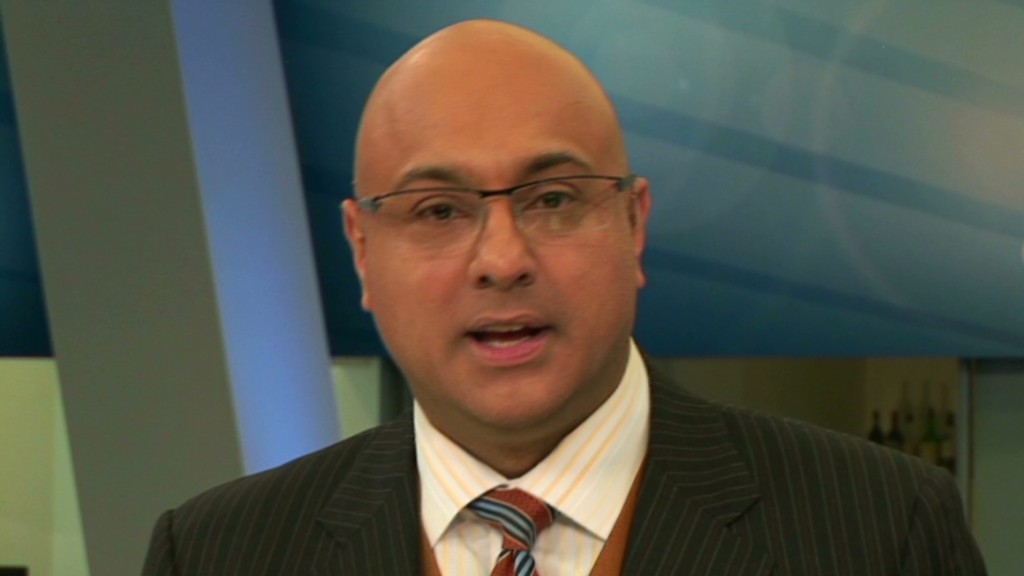
The winners of the biggest Powerball lottery in history aren't the only ones celebrating. The IRS has hit a jackpot of its own, with millions of dollars in taxes potentially coming its way.
The final jackpot rang in at $587.5 million on Wednesday night. Two winning tickets, bought in Missouri and Arizona, have been announced so far. The winners have 180 days to claim their money. The Missouri ticket holder came forward on Friday, but the Arizona winner is still a mystery.
The full $587.5 million prize can only be taken as an annuity, in which payments would be spread out over 29 years and taxed each year.
Otherwise, a cash payment of $385 million can be claimed right away. Of course, that too will be taxed. Big time.
If the two winners take lump sums, each will get $192.5 million. The prize, no matter how the winners take it, is considered income. So the highest federal tax rate of 35% will apply. Each winner, if they take a lump sum, would therefore owe a whopping $67 million to the IRS, said Mark Luscombe, principal analyst at tax research firm CCH.
Related: Powerball winners claim half of record prize
While the government only withholds 25% of the winnings, the full 35% will be owed at tax time, said Luscombe.

It's not just Uncle Sam who gets a share of the prize money. State taxes will also apply.
In Arizona, a resident who has the winning ticket will be charged a 5% tax on the prize money. If a non-resident bought the winning ticket, a 6% rate will apply. The resulting tax bill will be either $10 million or $11 million, according to CCH.
Missouri charges residents and non-residents a 4% tax -- making the tax liability there nearly $8 million.
Taking both state and federal taxes into consideration means the Arizona winner would owe up to $78 million in taxes and take home $114 million. The Missouri winner's tax bill would total about $75 million, leaving a take of $117.5 million.
However, in either case, the amount paid in state taxes could likely be deducted on the winners' federal tax returns, lowering the overall tax liability slightly.
Related: Where all of that lottery money goes
Calculating the taxes for a winner who takes an annuity is a lot harder.
The winnings would be spread out into 30 payments over 29 years and get taxed each year at the income tax rate at the time.
If tax rates weren't so unpredictable right now, Luscombe said keeping the winnings in an annuity could be a good idea, since it forces you to leave some of that money untouched.
"A lot of lottery winners aren't good with their money and run through it quickly, so sometimes an annuity is a good idea so that they save money," he said.
But given the uncertainty surrounding tax rates, Luscombe recommends taking the money as a lump sum and cashing it out this year rather than next year. As it stands now, rates for the highest-income earners are scheduled to jump on Jan. 1 to 39.6% from 35%. Even if leaders in Washington cut a deal to avoid that, there is a good chance taxes on the rich will be going up anyway.
Related: Does Powerball really boost the economy?
Another advantage of the lump sum is the winners can invest the money and potentially earn a bigger return than by leaving it in an annuity for 29 years, said Ben Barzideh, a wealth advisor at Piershale Financial Group.
Another issue to consider: gift taxes. The winners can currently gift up to $5 million before getting hit with a 35% tax rate. But if Congress doesn't take action, this rate is scheduled to increase to 55% with a $1 million exemption next year.
